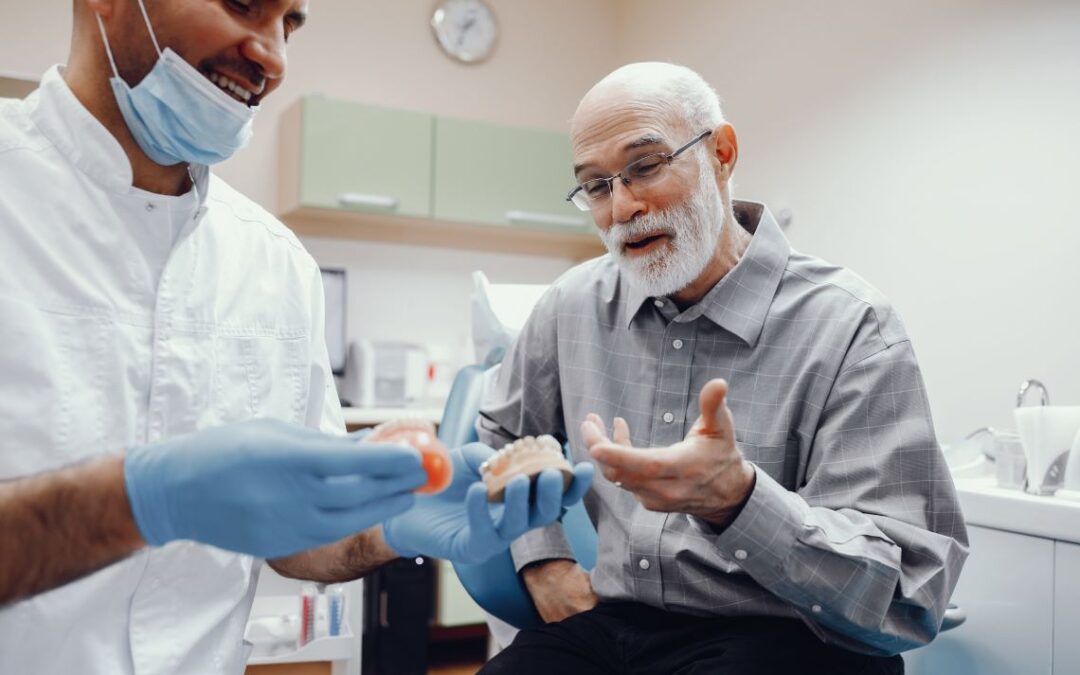Dental implants are a popular and effective solution for replacing missing teeth, but if you have diabetes, you may wonder whether you’re a suitable candidate for the procedure. Diabetes can affect healing and overall oral health, which raises concerns about the success of dental implant surgery. However, with proper management and care, many diabetic patients can safely receive dental implants and enjoy a restored smile.
How Diabetes Affects Oral Health
Diabetes is a condition that impacts the body’s ability to regulate blood sugar levels. High blood sugar can lead to various complications, including gum disease, slow healing, and an increased risk of infection. Since dental implants require a healthy oral environment and proper healing, these factors must be carefully considered before proceeding with the procedure.
If you have diabetes and are considering dental implants, it’s essential to consult a Valencia implant dentist who has experience working with diabetic patients. They can assess your oral health and determine the best approach for your specific needs.
Can Diabetics Get Dental Implants?
Yes, diabetics can get dental implants, but there are some important factors to consider. Research has shown that well-controlled diabetes does not significantly increase the risk of implant failure. However, poorly controlled diabetes can lead to complications such as:
- Delayed healing after surgery
- Increased risk of infection
- Higher likelihood of implant failure
To improve your chances of a successful dental implant procedure, it’s crucial to keep your blood sugar levels under control and maintain good oral hygiene. A dentist in Los Lunas can help you understand the specific risks and precautions related to your diabetes and dental health.
The Importance of Good Blood Sugar Control
One of the key factors in determining the success of dental implants for diabetic patients is blood sugar control. If your diabetes is well-managed, your body is better equipped to heal after surgery and fight off potential infections.
Before undergoing dental implant surgery, your Valencia implant dentist may recommend the following steps:
- Regularly monitor your blood sugar levels
- Maintain a healthy diet to support healing
- Follow a strict oral hygiene routine to prevent infections
- Visit your dentist regularly for checkups and cleanings
By taking these precautions, diabetic patients can increase the likelihood of a smooth recovery and long-term implant success.
Steps to Prepare for Dental Implant Surgery
If you’re a diabetic patient considering dental implants, preparation is key. Here’s what you can do to ensure a successful procedure:
- Consultation with Your Dentist
- Schedule an appointment with a dentist in Los Lunas to discuss your options.
- Provide your full medical history, including your diabetes management plan.
- Medical Clearance
- Your dentist may require clearance from your primary care physician or endocrinologist to ensure your diabetes is under control before proceeding.
- Optimize Blood Sugar Levels
- Work with your healthcare team to stabilize your blood sugar levels before the surgery.
- Oral Health Assessment
- Your Valencia implant dentist will examine your gums and jawbone to ensure they are healthy enough for implants.
- Antibiotic Use
- Some dentists prescribe antibiotics before surgery to prevent infection, especially for diabetic patients who may have a higher risk.
Dental Implant Procedure for Diabetic Patients
The dental implant process for diabetics is similar to that for non-diabetic patients, but with extra precautions. The procedure involves the following steps:
- Initial Consultation & Treatment Planning
- Your dentist in Los Lunas will take X-rays and 3D scans to assess your jawbone and plan the implant placement.
- Tooth Extraction (If Needed)
- If the damaged or missing tooth is still in place, it will be extracted before implant placement.
- Implant Placement
- A titanium implant is surgically inserted into the jawbone, acting as an artificial tooth root.
- Healing & Osseointegration
- Over the next few months, the implant fuses with the jawbone, a process called osseointegration.
- This step is crucial for diabetics, as slow healing can impact the stability of the implant.
- Abutment & Crown Placement
- Once healed, an abutment is attached to the implant, followed by a custom-made dental crown to restore the tooth’s function and appearance.
Post-Surgery Care for Diabetic Patients
After getting dental implants, proper post-operative care is essential for diabetic patients to prevent complications. Here are some important recovery tips:
- Monitor Blood Sugar Levels: Keeping your blood sugar stable helps prevent infections and promotes healing.
- Follow a Soft Food Diet: Eat soft foods and avoid hard or sticky items that could stress the implant site.
- Maintain Good Oral Hygiene: Brush and floss regularly, and use an antibacterial mouthwash if recommended by your Valencia implant dentist.
- Take Medications as Prescribed: If your dentist prescribes antibiotics or pain relievers, take them as directed to prevent infections.
- Attend Follow-Up Appointments: Regular checkups with your dentist in Los Lunas ensure your implant is healing properly.
Benefits of Dental Implants for Diabetic Patients
Despite the potential challenges, dental implants offer several benefits for diabetic patients:
- Improved Chewing Ability: Unlike dentures, implants provide a stable bite, making it easier to eat healthy foods.
- Prevention of Bone Loss: Implants stimulate the jawbone, preventing deterioration that occurs when teeth are missing.
- Enhanced Oral Health: Unlike bridges, implants don’t require alteration of adjacent teeth.
- Long-Lasting Solution: With proper care, implants can last a lifetime.
Conclusion
If you have diabetes and are considering dental implants, it’s essential to work with an experienced Valencia implant dentist to ensure the best outcome. While diabetes can pose certain challenges, proper management and dental care can make implant success highly achievable.
A skilled dentist in Los Lunas can guide you through the process, from consultation to post-surgical care, ensuring a safe and effective treatment plan.
Ready to restore your smile with dental implants? Schedule your consultation or call us today at (505) 865-9788—your healthier, confident smile starts here!
ALSO READ: What Is a Bone Graft for Dental Implants and Why Is It Needed?

